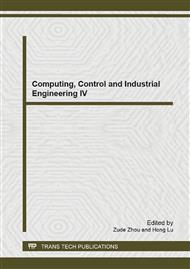p.572
p.577
p.581
p.585
p.589
p.594
p.598
p.602
p.606
Analysis of Driving Force on Reputation Network of Innovational Industrial Cluster Knowledge Transmitting
Abstract:
An innovative industrial clusters knowledge conduction is a duplicate dynamic game process, the traditional static game model is no longer applicable to the analysis of the motives of innovative industrial clusters inter-organizational cooperation. In this dynamic repeated game process, cooperative enterprises in each stage of the game will also face two basic strategic choice: cooperative (knowledge transfer) or uncooperative (betrayal, that is no knowledge transfer). In the course of this game, when the risks outweigh the benefits, the power of knowledge source transfer knowledge may not be enough. As an important mechanism to ensure that the contract honest implementation, reputation networks can be overcome the negative attitude of the tissue conduction knowledge to some extent, to promote knowledge sources maintain cooperative relations under the constraints of the reputation network, for knowledge sharing and conduction. It can be said that the reputation network constraints on cluster participants cooperative attitude can be seen as a necessary condition for organizations conduction knowledge in the cluster.
Info:
Periodical:
Pages:
589-593
DOI:
Citation:
Online since:
October 2013
Authors:
Price:
Сopyright:
© 2013 Trans Tech Publications Ltd. All Rights Reserved
Share:
Citation:


